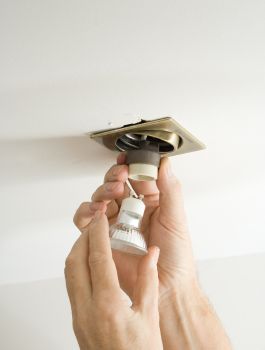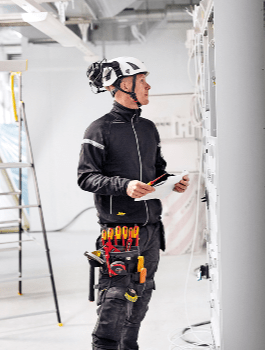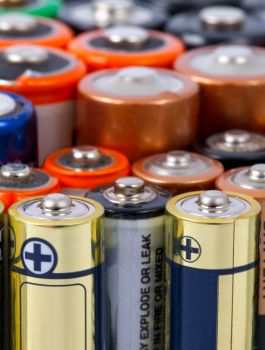Old/Damaged Wiring
Old and poorly wired electrical appliances, plugs, cables within or external to installations can be dangerous. No presence of fire doesn’t mean there’s no risk of fire. The important thing is to know what to check for to make sure your appliances and electrical installations don’t put everyone at risk.
In 2006, Amendment 2 of 17th Edition BS 7671 Wiring Regulations saw a change to unify the UK colours with the European cable colours both for consistency and to avoid confusion. It’s important that buildings have their wiring checked, to check if the wiring colours are out of date, have degraded over time, and to check if they comply with BS 767 Wiring Regulations.
In the UK:

*NOTE*
The consumer unit is now metal rather than plastic -
The 17th Edition Amendment 3 of BS 7671:2008 which came into effect in July 2015 stresses the importance of enhanced fire risk protection. On January 1st, 2016 metal clad consumer units were implemented for all new electrical installations and designs to replace the old plastic ones, to further enhance this risk protection.
Things to look out for:
Plugs and Sockets:
-
Heated plugs or sockets, burn marks, fuses that blow regularly or lights that flicker - these are all signs of a loose wire or other electrical problems
-
Plugs wired badly – any coloured wires sticking out could come loose and bits could get into the plug
-
Overloaded sockets – plugging too many electrical devices into one socket can create overheating.
Cables and Leads:
-
Never take risks with leads and cables. Always check if leads are:
-
Damaged and frayed – ensure the outer covering is in mint condition and, if necessary, replace.
-
Carelessly positioned – never leave leads near water, cookers, any heat sources or where someone could trip up.
-
Underneath flooring or carpets - don't put leads where they will suffer wear and tear without anyone noticing
Electrical appliances, particularly those which run at high speeds and contain motors (e.g. washing machines), should be serviced at least once a year by a qualified electrician.
-
It’s important to use the right fuse for the appliance when you’re fitting or replacing a fuse, to make sure it doesn’t overheat.
-
Always refer to the manual or check for a sticker on the appliance to find out the wattage, then use the right fuse:
-
appliances up to 700 watts - three amp fuse
-
appliances between 700 and 1,000 watts - five amp fuse
-
appliances over 1,000 watts - 13 amp fuse
*Don't overload extensions and leads, they have a limit on how many amps they can take.*

If your wiring contains older cable they may look like the image above, we would recommend getting a qualified electrician to test this in full asap. An insulation resistance test will determine if the cable can still be used. Cables like the one above would normally be 30+ years in age and should be removed.
You might be wondering - how can I check if my cables are old and need testing?
-
All cable installations should be tested periodically according to the updated BS 7671 regulations. This defines the frequency with which it has to be done
-
If you’re unsure and for your own peace of mind a periodic report should be done. Periodic checks should be considered, just as you would when servicing a car. If you do it right although you might not see the benefits/financial gains directly, when selling your property on the new owner will definitely appreciate the care you’ve taken with it.
-
While you’re in the property a periodic report will let you know if there is ever anything that might put you and your family in danger
Why does it matter?
Health/Safety - The main hazards of working with electricity are electric shock and burns from contact with live parts, injury from exposure to arcing, fire from faulty electrical equipment or installations, explosions caused by unsuitable electrical equipment or static electricity igniting flammable fumes or dust.
As far as is reasonably practicable (balancing the level of risk against the measures needed to control the real risk in terms of money, time or trouble) you have to ensure that electrical equipment is maintained to avoid danger. Always use test equipment to ensure the safety of you and everyone using the appliances.
Renting - As a landlord, you are responsible for all appliances that you supply within the house including cookers, microwaves, kettle, washing machines etc. The wiring within the property (plugs sockets, light fittings etc) are also your responsibility. They all must be in full working order and maintained to an acceptable standard.
To pick a contractor for the rewiring work go to The National Inspection Council for Electrical Installation Contracting - http://www.niceic.com/ - one of several organisations which regulate the training and work of electrical enterprises in the UK. NICEIC provides assessment and certification services for contractors within the building services sectors. They appraise electricians, renewable energy installers, plumbers and gas, and heating engineers.
Related Products
Test equipment
Replacement cable
Replacement fittings
Still not sure? Why not send us a picture and we can advise you - Contact Us Here

 Hate
Hate
 Dislike
Dislike
 Neutral
Neutral
 Like
Like
 Love
Love





















